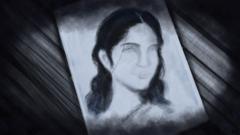PK Rosy, born Rajamma in early 1900s Travancore, was a revolutionary figure who, in the politically charged atmosphere of 1920s India, became the first female lead in Malayalam cinema. Her performance in *Vigathakumaran*, or *The Lost Child*, was groundbreaking, yet her legacy was overshadowed and ultimately erased due to her caste – she belonged to the marginalized Pulaya community, a group historically oppressed in India's rigid caste system. Despite her prominence as an actress, Rosy faced significant backlash for portraying an upper-caste character, leading to violent protests on the film's premiere, where she and her family were barred from attending due to their caste.
**Rediscovering PK Rosy: The Trailblazing Dalit Actress Whose Legacy Was Erased by Casteism**

**Rediscovering PK Rosy: The Trailblazing Dalit Actress Whose Legacy Was Erased by Casteism**
In a stark reminder of the challenges posed by caste discrimination, the life of PK Rosy, India's first female lead in Malayalam cinema, highlights the struggle for recognition and legacy preservation.
As a result of this backlash, Rosy was forced into obscurity, eventually changing her identity and marrying into an upper-caste family, severing her connection to her heritage. Though her accomplishments are slowly being reclaimed by contemporary Dalit filmmakers and activists, the scars of caste-based trauma remain deeply embedded in society, obscuring her true legacy. The story of PK Rosy is not just about an actress but reflects a larger narrative of caste oppression and the sacrifices bound to survive within a prejudiced society.



















